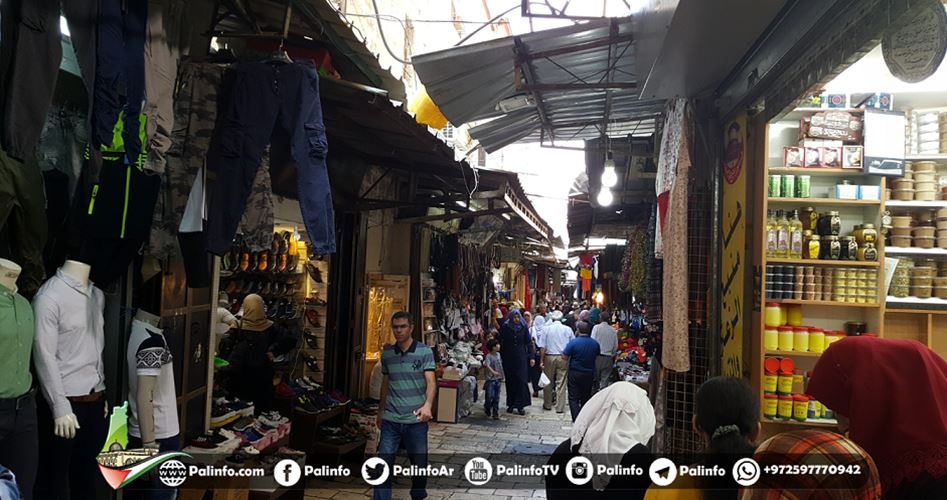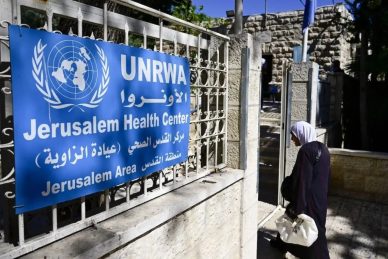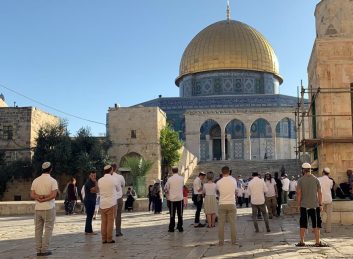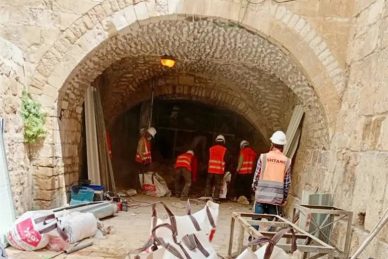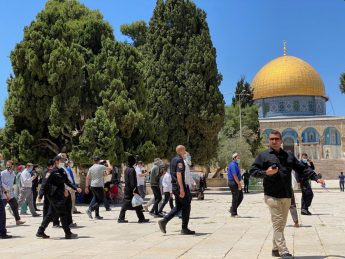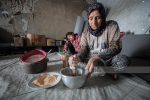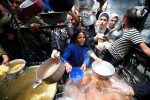As Eid al-Fitr a holiday marking the end of the holy month of Ramadan approaches the Israeli restrictions on Occupied Jerusalem and its markets intensify entailing economic recession on the seasonal goods and Jerusalem’s shops in an Israeli attempt to prevent the Jerusalemites from enjoying their holiday.
Merchants complain about the stagnation prevailing in the city due to the tightened measures imposed on the Jerusalemite citizens and merchants particularly after the Bab al-Amud dual attack.
Having a quick tour in Eastern Jerusalem’s markets one can notice the lack of shoppers as a result of the restrictions imposed on the holy city and the existence of the Apartheid Wall which prevents the West Bankers from shopping at will in it.
Ziad al-Hamouri director of the Jerusalem Center for Social and Economic Rights said that the Jerusalemite merchants wait every year for the coming of Ramadan and the Eid which brings about an economic recovery following 11 months of accumulated burdens.
Hamouri told the PIC that the commercial sector has been affected by the Israeli policy of collective punishment and the closure of several main streets in Jerusalem for two days following the latest Palestinian attack at Bab al-Amud.
According to statistics 82% of East Jerusalem’s residents live below the poverty line due to such policies.
Merchant Raafat al-Samman affirmed that the political situation in the city affects the economic one that is getting worse by the day.
“The atmosphere here does not indicate that we are on the eve of a holiday and prices are on the rise” Samman to the PIC reporter.
Abu Sa’adi al-Rajabi a Jerusalemite citizen said that Eid al-Fitr comes this year amid difficult economic conditions as the Israeli authorities repeatedly close the checkpoints and harass the Palestinian citizens.
Merchant Samir al-Halawani said that at the beginning of Ramadan there was a fairly good commercial activity but the Israeli closures in the wake of the Bab al-Amud attack led to paralyzing the commercial movement.
Halawani added that the Jerusalemite merchants hoped that the markets would be activated with the arrival of citizens coming from the West Bank and the 1948 occupied Palestinian territories but this unfortunately did not happen.
For his part merchant Abu Emad Maraqah pointed out that the purchasing power in Jerusalem is weak because of the dire economic situation describing the atmosphere on the eve of the Eid as sad.
He affirmed that the Jerusalemite merchants face more difficult conditions than the merchants of the other West Bank provinces calling for supporting them against a possible economic collapse.

